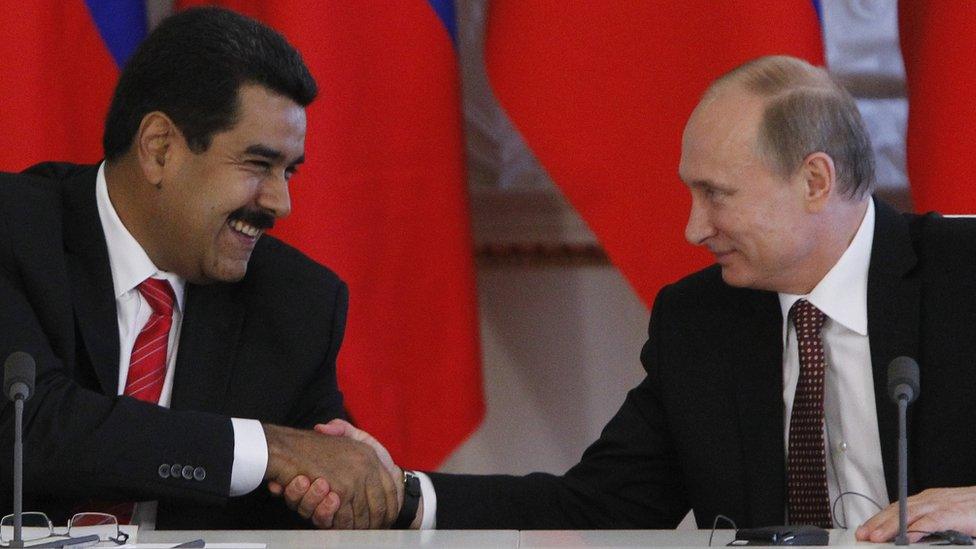Venezuela crisis: European states recognise Guaidó as president
- Published
Why Venezuela matters to the US... and vice versa
The UK, France, Germany, Spain and other European countries have officially recognised opposition leader Juan Guaidó as interim president of Venezuela.
It comes after President Nicolás Maduro defiantly rejected a deadline they set for Sunday to call fresh elections.
Mr Guaidó declared himself interim leader last month and won US backing.
Russia - a backer of Mr Maduro - accused EU countries of meddling in Venezuela's affairs.
On Sunday Mr Maduro dismissed calls for a new presidential vote, saying he would not accept "ultimatums". He has denounced Mr Guaidó's move as a coup.
As head of Venezuela's National Assembly, Mr Guaidó says the constitution allows him to assume power temporarily when the president is deemed illegitimate.
What have the European countries said?
After Sunday's deadline passed, a flurry of statements was issued by France, the UK, Germany and Spain and the other countries that now recognise Mr Guaidó as interim president.
Many of them pressed Mr Maduro to call new elections.

Mr Guaidó's mother was among the crowds at protests on Saturday
French President Emmanuel Macron said Venezuelans had the right to "express themselves freely and democratically", external, announcing his support for an EU contact group.
Spain's Prime Minister Pedro Sanchez said Venezuela "should be the author of its own destiny".
UK Prime Minister Theresa May's official spokesman said that "further steps" were being considered, including the use of sanctions, without outlining what form any possible sanctions might take.
While a majority of EU members back Mr Guaidó, others such as Greece and Ireland called for fresh elections but stopped short of recognising him.
Russia has attacked Monday's statements, accusing EU countries of interfering in Venezuela's affairs and attempting to "legitimise usurped power".

Why no unity from the EU?
By Gavin Lee, BBC Europe reporter
The EU doesn't typically make any decisions on whether or not to recognise a government.
What there has been is action from individual member states, a co-ordinated effort by the UK, France, Germany and Spain to persuade all EU countries to take the same position.
So far more than half of the 28 member states have declared recognition of Mr Guaidó as interim leader.
Other members are cautious, concerned about setting a precedent of recognising a self-proclaimed leader.
Italy's populist coalition government is split, and not likely to back any co-ordinated plan because the leaders of one half of the ruling coalition, the 5 Star Movement, have declared that it's not "for the EU to tell another nation what to do".

Has Mr Maduro responded?
The Venezuelan government said it would "fully review" its relations with the European governments who had recognised Mr Guaidó.
A foreign ministry statement said those governments were "officially submitting to the United States administration's strategy to overthrow the legitimate government of President Nicolas Maduro".
Desperate Venezuelan women are selling their hair at the border
In an interview with Spanish television programme Salvados broadcast on Sunday, Mr Maduro was asked if the crisis in Venezuela could result in civil war.
"Everything depends on the level of madness and aggressiveness of the northern empire [the US] and its Western allies," he said.
President Trump has told US broadcaster CBS that the use of military force remains "an option", external.
Mr Maduro says he will start collecting signatures from Venezuelans for an open letter to Mr Trump rejecting foreign military intervention.
Who is really in charge in Venezuela?
In another development, Mr Maduro has written to the Pope asking for help in renewing dialogue, Vatican officials said.
What is the situation in Venezuela?
Mr Maduro, who took office in 2013 after the death of Hugo Chavez, has been condemned for alleged human rights abuses and for his handling of the economy.
There are severe shortages of basic items such as medicine and food.
The annual inflation rate reached 1,300,000% in the 12 months to November 2018, according to a study by the National Assembly.
By the end of 2018, prices were doubling every 19 days on average.
The price of a cup of coffee in the capital Caracas doubled to 400 bolivars ($0.62; £0.50) in the space of just a week last December, according to Bloomberg.
Many people have been voting with their feet and leaving Venezuela. According to United Nations figures, three million Venezuelans have left the country since 2014 when the economic crisis started to bite.
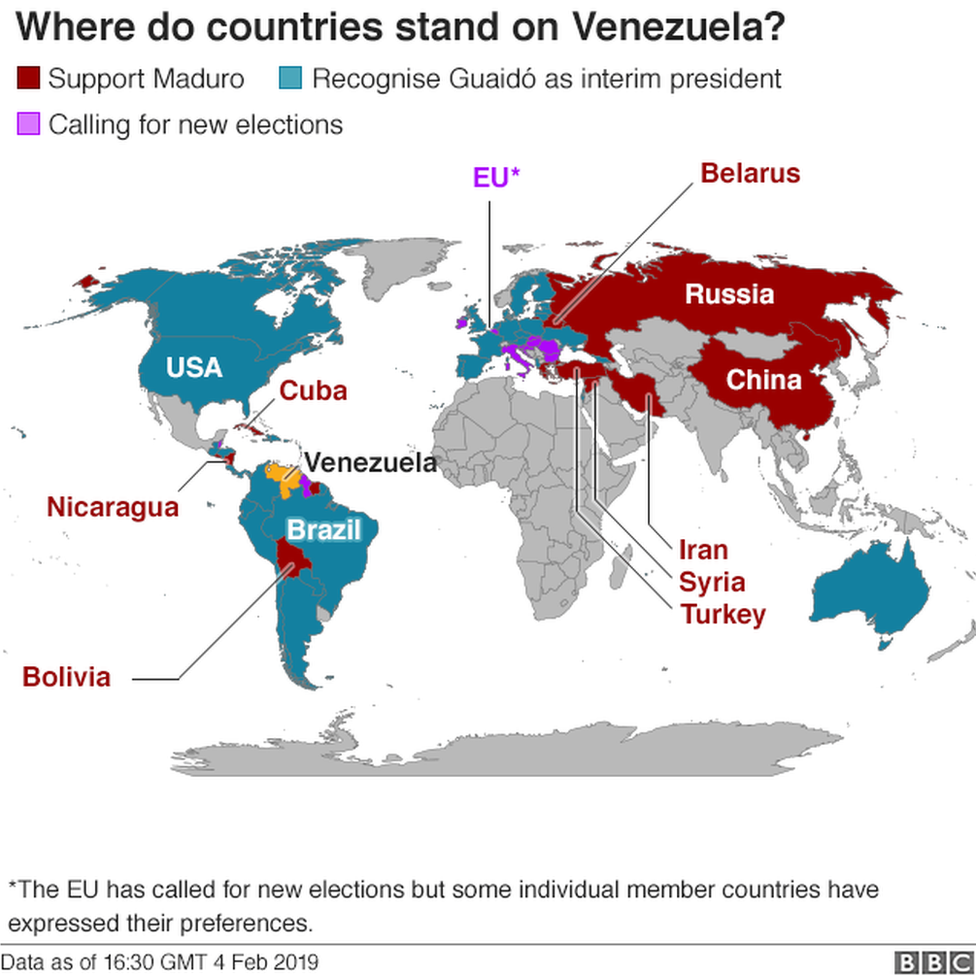

- Published28 January 2019
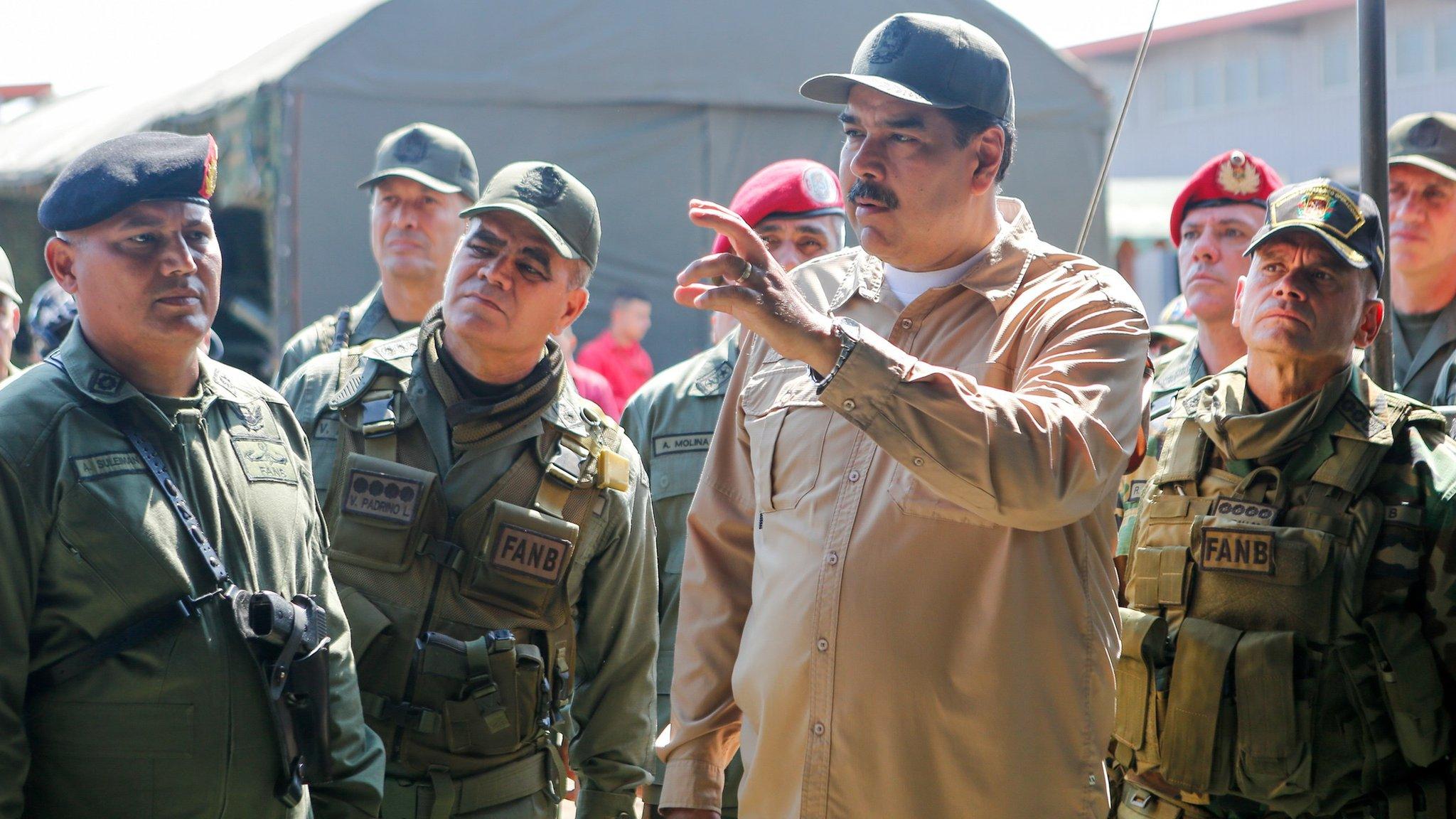
- Published2 February 2019
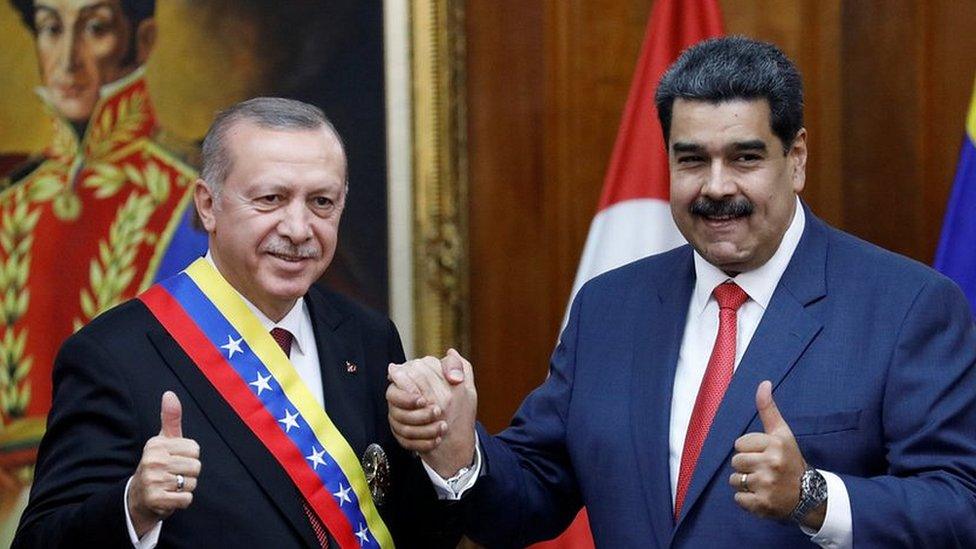
- Published29 January 2019
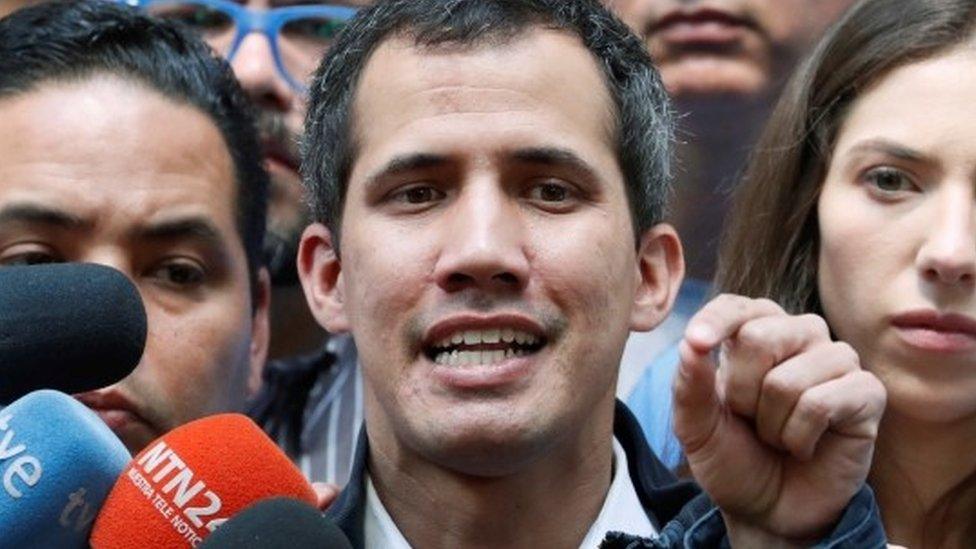
- Published25 January 2019
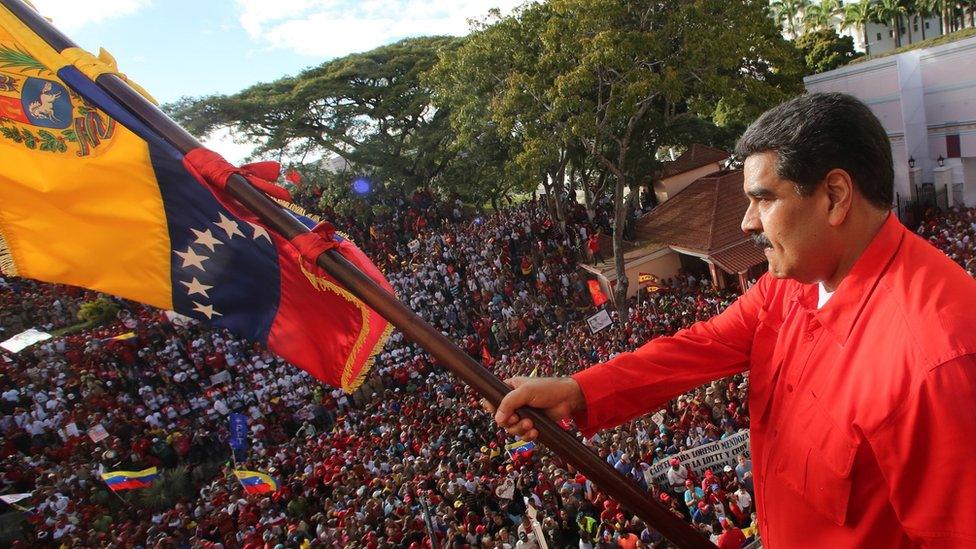
- Published5 February 2019
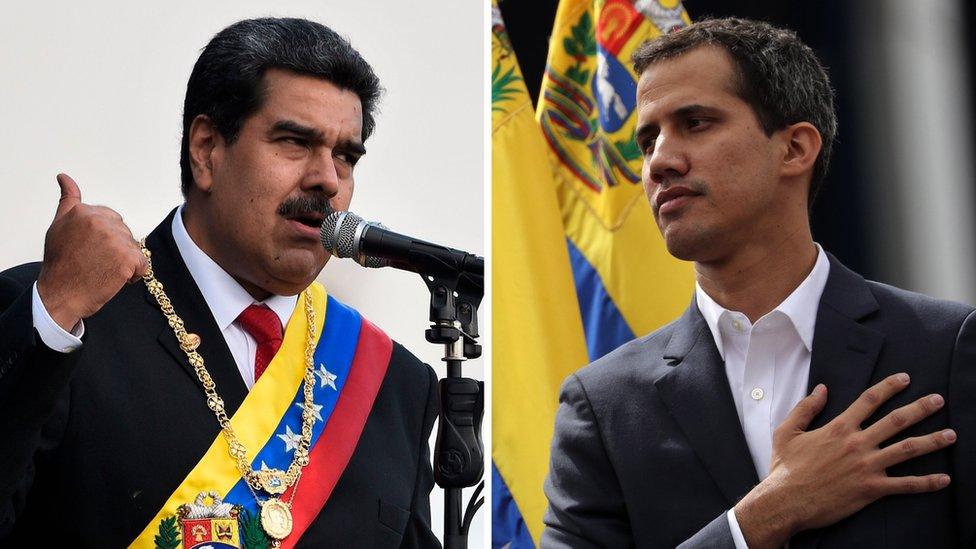
- Published4 February 2019
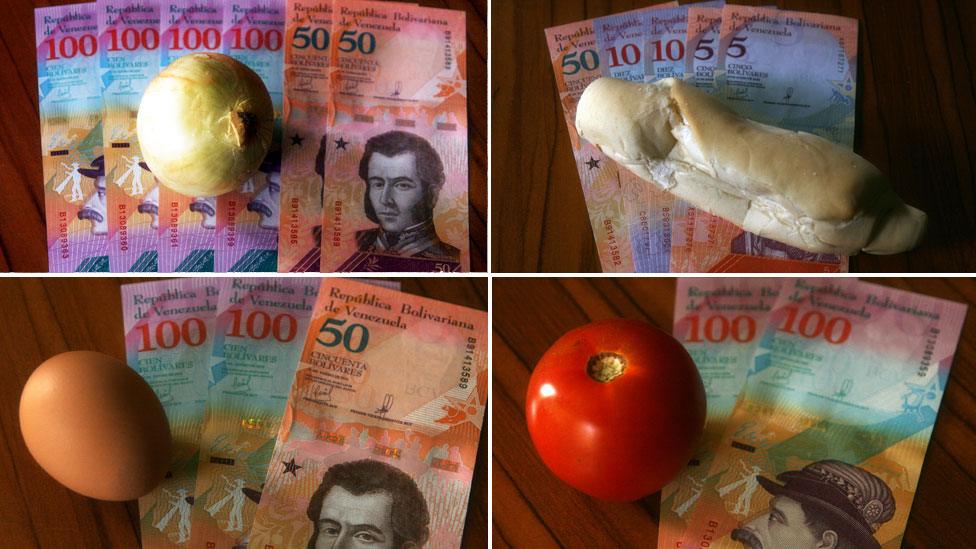
- Published1 February 2019
